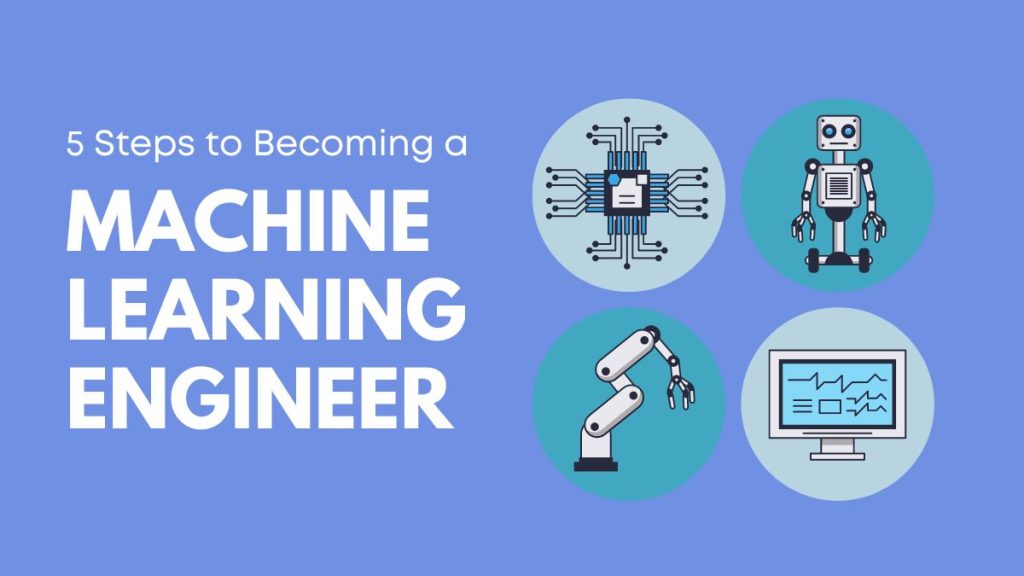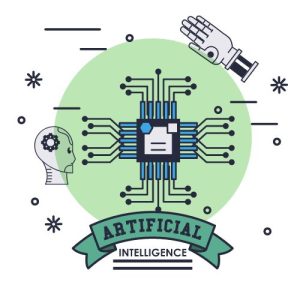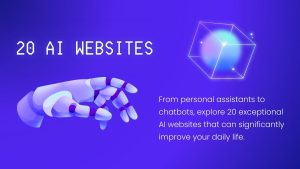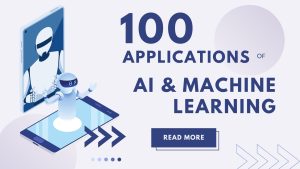5 Steps To Becoming A Machine Learning Engineer

The field of artificial intelligence (or AI for short) is booming right now and it’s only going to get more popular. A lot of companies are investing in AI because it’s expected to revolutionize their industry, and they want to be one of the first ones to adopt new technologies and reap the benefits.
If you have a passion for learning and constantly improving your skills, becoming an AI engineer might just be your calling. There are plenty of benefits to working as one in this field. Most engineers who specialize in AI can earn a competitive salary right out of school due to the high demand for talent.
So what do you need to become an AI engineer? Let’s take a look at some of the top steps you need to take in order to become one.
What is AI?

Artificial intelligence is the combination of computer systems and algorithms that allow a machine to perform tasks normally associated with human thought and perception. Businesses are using AI in different ways, such as helping with customer service, managing operations, automating repetitive tasks, and doing complex analyses.
AI can be applied across many different industries and verticals, but it’s especially important in health informatics, where it can help improve the quality of healthcare services and outcomes. It can also help optimize operations and increase efficiencies in many other industries, like financial services and retail.
As one of the top data science specializations, AI is a huge opportunity right now, and there are many job opportunities available in the field. The biggest challenge people face when it comes to finding a job in AI is that it’s still a new field that’s getting a lot of attention, but there’s a lot of opportunity and growth coming up.
Why is AI so important?
AI has been getting a lot of attention lately, and there are many reasons for that. As a society, we’ve been moving towards automation for a while now. This trend has been increasing for decades, and it’s expected to continue. In the future, more and more tasks will be automated by AI.
Automation increases productivity and makes operations more efficient, but it also has a negative side effect: people don’t have jobs anymore. AI is expected to accelerate this automation trend.
It’s able to analyze huge amounts of data and make sense of it, which is why it’s so valuable. It can automate many tasks and make businesses more efficient. AI can also be used for fraud detection and security purposes. This makes it important for many operations.
Step 1. Learn machine learning fundamentals
Before diving into the specifics of how AI systems work, you need to get a basic understanding of how algorithms work and how they’re implemented. Machine learning is the process of creating models with data. It’s where AI models are created by analyzing historical data and making predictions based on it.
Algorithms are the foundation of machine learning, and there are many different types. You need to get a basic understanding of these to truly be a master of the field.
One of the best resources for learning about the history and theory of machine learning is probably the book Neural Networks and Deep Learning by Michael Nielsen, which is available online for free.
Step 2. Earn AI-Specific Certification
Many companies in the AI space are investing a lot of time and resources into certifications and other credentials that prove you have the knowledge required to work in AI.
Another credential is the Professional Certificate in Computer Science for Artificial Intelligence from Harvard University, which is a shorter course that teaches the same fundamentals of AI. This program includes the infamous CS50 Introduction to Computer Science and Introduction to Artificial Intelligence with Python.
There are a lot of other AI-specific certifications and training resources out there, and they’re becoming increasingly popular. That’s because companies are demanding them. If you want to become an AI engineer and make your career out of it, it helps to get an AI-specific certification.
Step 3. Build your coding foundation
This may sound like a no-brainer, but it’s surprising how many engineers don’t learn basic programming skills. Programming is a must-have skill for all engineers in the 21st century. It’s becoming more important than ever before, and it will be the core of your career moving forward.
No matter what type of engineer you want to be, you need to be able to write some code. There are so many different programming languages out there, so it can be confusing to decide what’s best for you. It’s important to pick one, learn it well, and stick with it. Even though AI is all about algorithms and data, there are still a lot of opportunities to write code and get involved in building products.
Step 4. AI Development Tools
This may be a surprise to some people, but tools are where it’s at for AI development. While there are many different programming languages out there and plenty of resources to learn them all, there are only a few tools that you need to become an AI engineer. Specifically, you’ll need to learn how to work with deep learning libraries and frameworks.
When you’re learning to code, you use a number of tools to help you learn. Similarly, when you want to become an AI engineer, you need to use a suite of tools to get started.
There are many AI development tools available to developers and researchers today, including:
- TensorFlow: an open-source library for machine learning developed by Google.
- PyTorch: an open-source machine learning library developed by Facebook.
- Keras: a high-level neural networks API written in Python and capable of running on top of TensorFlow, CNTK, or Theano.
- Scikit-learn: a Python library for machine learning and data analysis.
- Caffe: a deep learning framework developed by Berkeley AI Research.
- Theano: a Python library for numerical computation that allows developers to define, optimize, and evaluate mathematical expressions.
Step 5. Test, measure, and optimize
Success in machine learning and AI is all about testing your models and measuring their performance. It’s a continuous process where you try out new models and refine your current ones based on the results. You need to test your models on lots of data and measure their performance. If a model isn’t working, you need to figure out why and fix it. Because at the end of the day, you need to optimize your code with the goal of making it run as efficiently as possible.
As you’re learning your AI fundamentals, it’s important to put those skills to use. AI is a broad field, and there are a lot of opportunities in data science to get involved in different ways. For example, many companies have data science teams that are focused on training AI models and have special tools for this task.
They might also have data engineering teams that help build the infrastructure needed to run these models, like databases or cloud services. If you’re looking to get involved with AI development, you can sign up for these teams and work on different projects. You can also look for opportunities to work on projects that use your specific skill set. For example, if you’re interested in building models for fraud detection, you can sign up for that type of project… or this really cool robot hand that can solve a Rubik’s Cube!
Dive into machine learning
This might be the most important step you take in your AI career. It’s easy to get overwhelmed with all the different machine learning frameworks and libraries out there, so it’s important to prioritize your skill set. The best way to do this is by learning one machine learning algorithm and getting familiar with its applications.
Remember, AI isn’t just about building algorithms and getting great results with machine learning. It’s also about building high-quality user experiences and collecting high-quality data.
If you want to become an AI engineer and make your career out of it, you’ll need to get a solid understanding of machine learning fundamentals, get an AI-specific certification, use a machine learning development tool suite, and test, measure, and optimize your models. All of these will help you get a job in AI.



Related Artificial Intelligence
The Ethics of AI: Balancing Advancements with Responsibility
AI and the Job Market: Will Robots Take Over Our Jobs?
10 Virtual Girlfriend Apps to Build a Relationship
AI Programming for Beginners: A Step-by-Step Guide to Get You Started
100 Applications of AI and Machine Learning
From Sci-Fi to Reality: Exploring the Evolution of Artificial Intelligence
20 AI Websites That Can Transform Your Life
A Guide to Python Libraries for Machine Learning